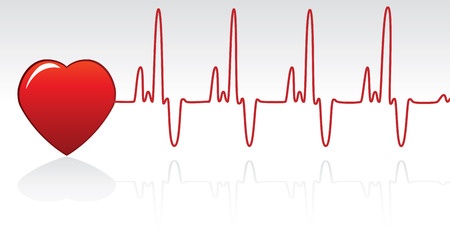Understanding Your Target Heart Rate

Your heart rate is an integral part to how your body functions but can also be a way to tell if you are overexerting your body or not. Your heart rate or pulse has a standing level (the rate during normal activity) and a peak heart rate (when exercising full force.) Your suggested target heart rate (THR) is going to be about 70-85% of your peak level.
For those who want to exercise but are not sure of the right exercise regimen, we suggest talking to your heart physician. However many health experts have stated that maintaining your target heart rate for up to 45 minutes, up to 5 times a week is optimal.
Age and Your Target Heart Rate
Factors like your age and health will also help you determine what target heart rate levels should be at. If for some reason, your heart does not stay within a normal level, it is suggested that speaking with a heart specialist would be a great option. The American Heart Association has numerous charts and information to help you thoroughly understand overexertion and the ‘limits’ for your particular age group in regards to target heart rate.
Over-Training Can Affect Your Heart Rate
It is unknown how many people really understand the dynamics between how the body works and what they think they are doing to be ‘healthy.’ Many people over-train which in actuality cause more damage to the body and more likely doesn’t show the results that people are looking for during workouts. The total amount of heartbeats per minute are different for every individual and can be a great gauge on how fit he or she is to begin with. Overdoing it, and pushing your body to the max during every workout can lead to dizziness, dehydration, fainting, chronic pain, and risk of infection (from compromising the immune system.) It only takes a couple minutes to check your heart rate, listen to your body, and achieve those optimal results that you are seeking. Everything is great – in moderation!
Learn More about Your Heart Rate from Dr. Ciuffo
Dr. Ciuffo’s expertise in Minimally Invasive Heart Surgery and Bloodless Heart Surgery is the result of a career dedicated to the development and improvement of these techniques. He currently runs a busy Cardiothoracic Surgery practice and directs a dedicated Minimally Invasive and Bloodless Heart Surgery Program at Mercy Medical Center in Canton, OH, where he cares for patients coming from the region and from the rest of the country.

